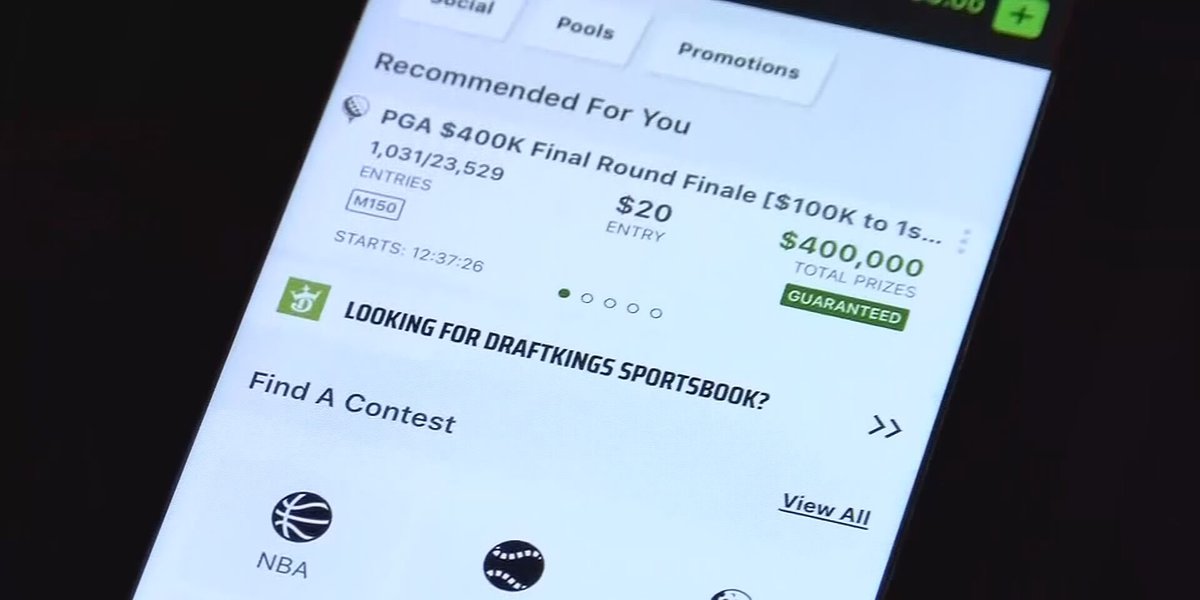
PHOENIX (3TV/CBS 5) — Arizona legalized sports betting in 2021, and in the time since, the state has earned more than $35 million taxing gaming company profits. But an Arizona’s Family Investigation found several other states are making more money in taxes from sports betting, and in some cases — eclipsing Arizona’s take.
The US Supreme Court paved the way for legalized sports betting across the country in 2018 when justices struck down the federal law that effectively banned sports betting in most places outside of Nevada and Atlantic City. From that point on, it was up to individual states to legalize the activity within their boundaries.
Brianne Doura-Schawohl, the CEO of a firm specializing in problem and responsible gambling policy, says the COVID pandemic seems to have put legalized sports betting on the fast track. “All of a sudden there was a whole lot of new demands to address. Issue of public health, education, a whole bunch of new needs and a lot of revenue and taxes that where no longer on the table,” said Doura-Schawohl.
According to her, that created an opening for the gaming industry and its supporters to promote sports betting as a new revenue stream. “We weren’t really asking the right questions to understand the implications of this expansion,” said Doura-Schawohl.
By March 2023, more than 35 states, territories and the District of Columbia had legalized sports betting. But the revenue stream that followed has varied by state and tax rate. In Arizona, lawmakers debated the tax rate in committee hearings. Lawmakers and lobbyists who supported gaming argued for no more than an 8% tax on profits after promotional bet payouts and federal taxes.
“Anything above 8%, now we’re starting to make the bookie and the end of the bar, we’re starting to make him a lot of money,” said Sen. Sonny Borrelli, A Republican from Lake Havasu, who was a bill sponsor. Borrelli was inferring that illegal gambling operations would still flourish if the tax rates were high because legitimate gaming businesses would be unable to operate in the state.
Arizona lawmakers implemented an 8% tax rate for in-person sports betting and a 10% rate for internet and mobile wagers. And they created deductions for so-called “free” or promotional bets, which will eventually be phased out.
Some other states created much higher tax rates. Illinois taxes sports betting profits at 15%. Massachusetts levies a 20% tax on profits. New York, Rhode Island and New Hampshire impose a 51% tax on sports betting. “People back east, they put the tax up so high, you know they made the mafia billions of dollars because they, nobody’s going to do it legally,” said Borrelli back in 2021.
But that forecast may not have played out quite like the lawmaker predicted. In 2022, people in Arizona wagered $6 billion on sports. That resulted in $28.5 million in tax revenue. With a fraction of Arizona’s population and just $861 million in bets, New Hampshire earned $23 million in tax revenue from those bets. That’s nearly as much as Arizona made. And New York, with $14.6 billion in mobile bets, earned a whopping $660 million in taxes.
Doura-Schawohl says some states are beginning to revisit their gambling tax structures. But she also says focusing too much on the dollars overlooks other problems that have materialized in the time since legalized sports betting spread across the country. “The down side is how many people are engaging in this without recognizing that, similar to things like alcohol or tobacco, gambling comes with risks. This is a product that can have addictive qualities for certain individuals,” said Doura-Schawohl, who points to studies that show those problems have increased since sports betting became legal.
Currently, no measures are being debated at the Arizona capitol which would increase the tax on sports gambling companies. Governor Katie Hobbs’ office says her administration is not pursuing any change to the current tax rate at this time. Sen. Borrelli did not respond to requests to comment.
If you have a gambling addiction or are looking for someone to speak to about problem gambling, call the state’s 24-hour helpline at 1-800-NEXT-STEP or text NEXT-STEP to 53342.
Copyright 2023 KTVK/KPHO. All rights reserved.